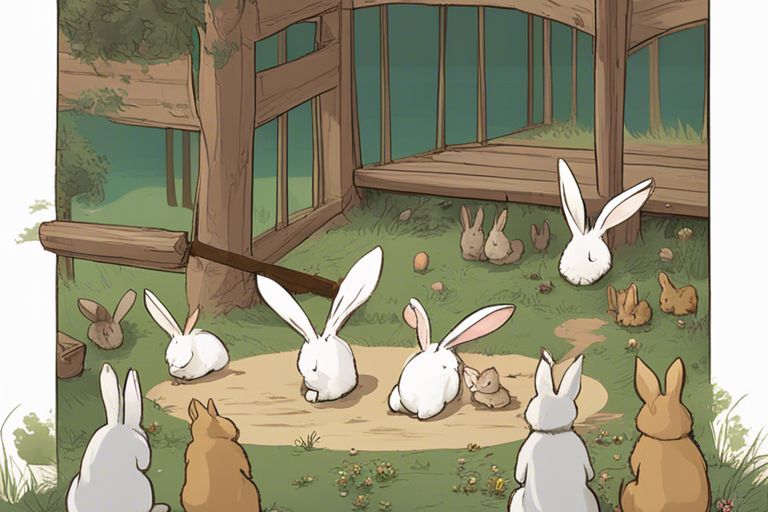Ensuring a harmonious relationship between your rabbits can be challenging, but aggression can be prevented with the right approach. To begin with, it’s crucial that you neuter or spay your rabbits as it can significantly reduce their aggressive tendencies. Additionally, providing sufficient space, toys, and hiding spots in their environment can help reduce territorial behavior. It’s also important to introduce new rabbits gradually and carefully to prevent any potential conflicts. By taking these preventive measures, you can ensure a peaceful and safe living environment for your rabbits.
Early Signs of Aggression in Rabbits
Your rabbit may display early signs of aggression towards other rabbits, and it’s important to pay attention to these behaviors. Early intervention can prevent the aggression from escalating and causing harm to your pets.
Identifying Aggressive Behaviors
Aggressive behaviors in rabbits can include growling, lunging, biting, and mounting other rabbits excessively. If you notice any of these behaviors, it’s essential to address the issue promptly to prevent it from escalating.
Factors Contributing to Aggression
There are various factors that can contribute to aggression in rabbits, including territoriality, gender, and environmental stress. If your rabbits feel their territory is being invaded or if they feel threatened by another rabbit, they may become aggressive. Gender can also play a role, as unneutered male rabbits are more likely to be aggressive towards other males. Additionally, environmental stress, such as overcrowding or lack of hiding spots, can trigger aggressive behaviors. Understanding these factors can help you address the root cause of the aggression and take appropriate measures to prevent it from escalating. Though, it’s important to address these contributing factors to create a harmonious environment for your rabbits.
Preventative Measures
Some rabbits may develop aggressive behavior towards other rabbits, but there are measures you can take to prevent this from happening. By being proactive and providing the right environment and socialization, you can minimize the risk of your rabbit becoming aggressive towards others.
Early Socialization
When you first introduce a new rabbit to your household, it’s crucial to socialize them early on. This means allowing them to interact with other rabbits from a young age. This will help them develop positive social skills and reduce the likelihood of aggressive behavior towards other rabbits in the future.
Spaying or Neutering
Spaying or neutering your rabbit is an important step in preventing aggressive behavior. Unaltered rabbits are more likely to exhibit territorial and aggressive tendencies, especially towards other rabbits of the same sex. By getting your rabbit spayed or neutered, you can reduce the risk of these behaviors developing.
Providing Adequate Space
Ensure that your rabbits have adequate space in their living environment. Overcrowding can lead to stress and territorial behavior, which can result in aggression towards other rabbits. Make sure that each rabbit has enough space to move around, exercise, and establish their own territory.
Proper Introduction
When introducing a new rabbit to your existing rabbit(s), it’s important to do so gradually and carefully. Keep the rabbits in separate enclosures at first, allowing them to become familiar with each other’s scent before allowing direct interaction. Supervise their initial interactions closely, and be prepared to separate them if any signs of aggression are observed.
By following these preventative measures, you can greatly reduce the likelihood of your rabbit becoming aggressive towards other rabbits. Remember to be patient and consistent in providing a positive and supportive environment for your rabbits to thrive in.














